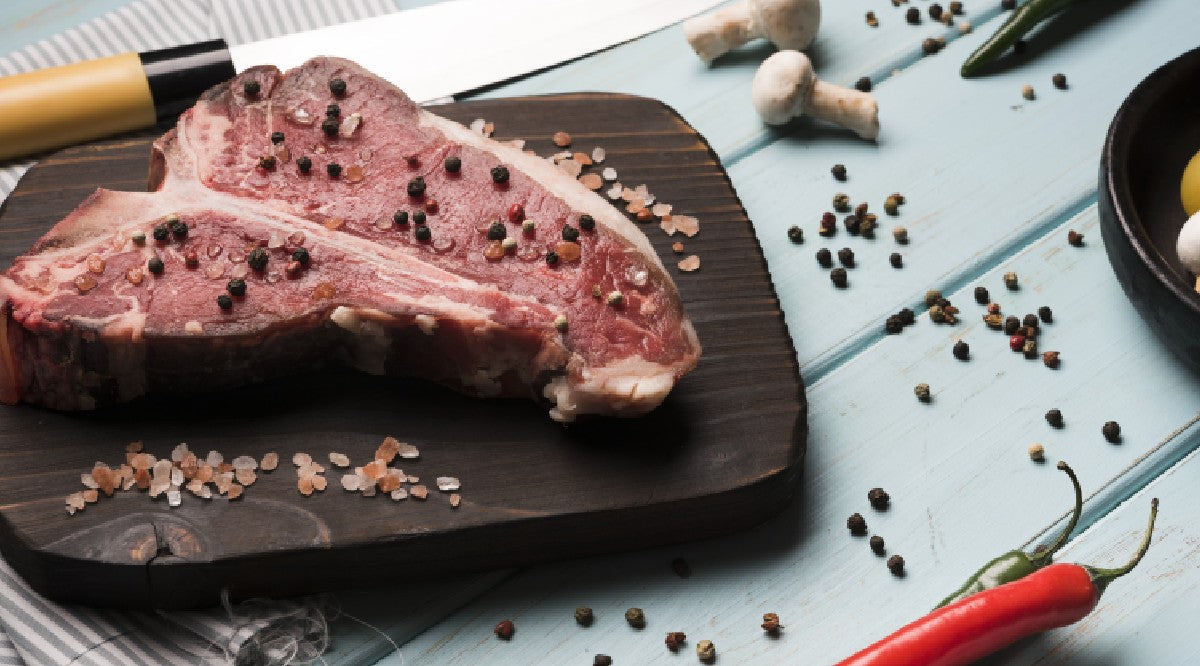
Why butchers use herbs and spices to enhance meat flavours?
Why butchers use herbs and spices to enhance meat flavours?
When you step into a butcher shop, the aromatic blend of herbs and spices can be intoxicating. There's a reason why experienced butchers and chefs alike swear by the power of these natural flavour enhancers. At Golden Spices, we believe that understanding the role of herbs and spices in meat preparation can elevate your cooking to new heights.
Firstly, why does meat taste different?
According to ButcherSA, there has been a great deal of research over the years into the chemical components of meat flavour and a very large number of substances have been found to be involved. There is little that can be done to alter the inherent flavour of meat after the animal has been slaughtered. However, understanding the flavour profile of various types meats can help butchers make better seasoning and flavour decisions.
The meat flavour increases with the age of the animal at slaughter. So, meat from an older animal has more flavour than meat from a young animal, and as a result, mutton for example, has more flavour than lamb.
The characteristic flavours of beef, lamb, chicken, etc., also reside more in the fat than in the lean meats. As a result “fat free” or “reduced fat” meat products are likely to be less flavoursome than those with higher fat content.
All processed meat products must contain seasonings and flavours to create the individual fingerprint and yield acceptance to the consumer.
Why do butchers use herbs and spices?
Herbs and spices are not just about adding taste; they also engage in a bit of culinary experimentation. Here’s how they transform your meat:
Flavour profiles: Each herb and spice brings a unique flavour profile that can complement and enhance the natural taste of the meat. For example, rosemary and thyme add earthy notes that work beautifully with lamb, while paprika and cumin add a smoky depth to beef.
Tenderising properties: Certain spices, such as ginger and garlic, contain enzymes that help break down proteins, making the meat more tender.
Reduce growth of bacteria in foods: Certain herbs and spices – including clove, cinnamon, thyme, oregano and rosemary – can function as antibacterial agents in food.
Aromatic compounds: Herbs like basil, oregano, and cilantro contain aromatic oils that release their essence when cooked, creating a sensory experience that starts with the nose.
Balanced complexity: Using a blend of spices can create a balanced complexity that makes each bite a journey of flavours, preventing the meat from tasting one-dimensional.
Preservative qualities: Salt, one of the oldest preservatives, was often combined with other spices to extend the shelf life of meats before the advent of refrigeration.
Herbs and spices are essential tools in a butcher’s toolkit, and understanding how to use them can transform your meat dishes. By experimenting with different combinations, you can discover new flavours and textures that delight your palate and elevate your cooking.
Golden Spices, quality herbs and spices
At Golden Spices it is our business to supply high quality products to all our customers, and yours. We strive to add flavour to your food and meat products included. If you want to know more about our quality range of products to help you on your culinary journey, feel free to get in touch with us.
If you would like to know more about the range of herbs, spices, and marinades that we have to offer for resale, get in touch with us at info@goldenspices.co.za

If you found this blog useful and would like to receive future blogs, please subscribe now. www.goldenspices.co.za
Reference: https://www.butchersa.co.za/seasoning-and-flavouring-for-meats/

